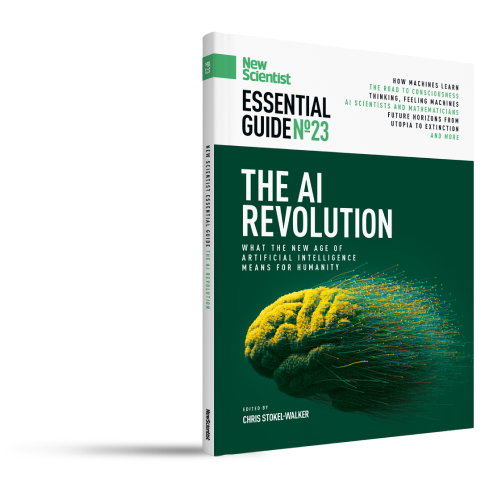
The AI Revolution
What the new age of artificial intelligence means for humanity
AI has long been considered tomorrow's technology. But in November 2022 the release of ChatGPT ushered in the age of generative AI. These powerful and creative tools are transforming everything we thought we knew about the technology’s capabilities and how it works. So why has artificial intelligence suddenly leapt forward? How can generative AI tools help you? And will AIs lead to human extinction?
Find out how AI is set to disrupt societies and economies in this 23rd Essential Guide with topics including:
- How machines learn
- The road to consciousness
- Thinking, feeling machines
- AI scientists and mathematicians
- Future horizons from utopia to annihilation
Published: July 2024
About New Scientist
New Scientist is the world’s most popular weekly science and technology publication. Our website, app and print editions cover international news from a scientific standpoint, and ask the big-picture questions about life, the universe and what it means to be human. If someone in the world has a good idea, you will read about it in New Scientist.
Since the magazine was founded in 1956 for “all those interested in scientific discovery and its social consequences”, it has expanded to include newsletters, videos, podcasts, courses and live events in the UK, US and Australia, including New Scientist Live, the world’s greatest festival of science. New Scientist is based in London and New York, with operations elsewhere in the UK, the US and Australia.
